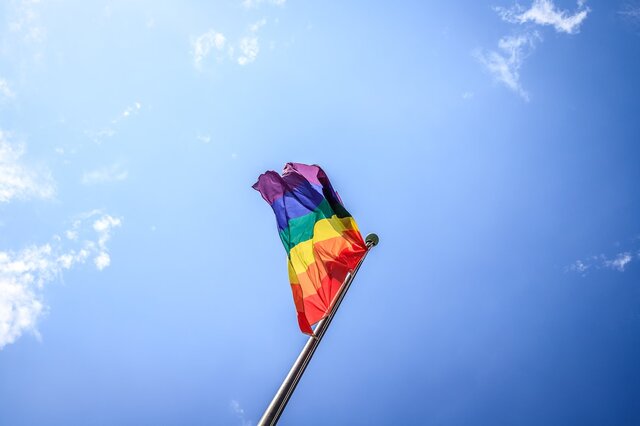Nigeria – Performers strutted their stuff onstage at an LGBTQ community dance party in Nigeria’s Lagos, publicly celebrating their identities in a country where being gay could land you in jail.
To the tune of Afrobeats stars like Ayra Starr and pop stalwarts like Beyonce, a parade of sequin-wearing, wig-clad, neo-goth performers danced, spun and posed for the jury, egged on by a raucous crowd.
Among the attendees was Kim, a 27-year-old transgender woman who came to Lagos six months ago after suffering physical violence and harassment in her central Nigerian town.
“Nigeria is tough on queer people but the positivity, just holding on to what we have — and that’s our true self — it’s powerful here,” Kim told AFP.
Like Kim, many in the ballroom were looking for a safe space to express themselves in the face of repressive laws and hostility in Africa’s most populous country.
Being gay in Nigeria — a highly religious country divided into a predominantly Muslim north and largely Christian south — is punishable by 10 to 14 years of prison under a law passed in 2014.
Though the law is rarely applied, it has legitimised widespread intimidation and violence against the LGBTQ community.
A safe space
Despite this discrimination, Nigeria has had a culture of LGBTQ balls for around 20 years.
Ayo Lawson, who helped put on the event, said her first experience of a ballroom was “life changing”, adding that the organisers wanted “to just give people a safe space where they can be free”.
“People underestimate how privileged it is to be able to hold your girlfriend’s hand, you know, hold your boyfriend’s hand, and kiss them in the restaurants and stuff like that. So it’s difficult but we are always happy to have this little pocket of safety,” said Lawson, who identifies as lesbian.
The Saturday night ball, held in a hangar in suburban Lagos, marked the start of Pride Month, an annual June celebration of LGBTQ rights around the world.
It was held in memory of Fola Francis, the first transgender woman to have walked the catwalk at Lagos Fashion Week, who died in an accident in December, just shy of her 30th birthday.
“I had the privilege of knowing Fola in two persons, because I say I knew Fola before she transitioned,” designer, creative and art director Uche told AFP.
Sporting a thin moustache, long braids and a sequined jumpsuit, Uche walked on stage to perform Coldplay’s “O Fly On” as a tribute to the trailblazing activist, whose death he called “absolutely devastating.”
Beauty in the crack
On the jury judging Uche’s performance that night was Ashley Okoli, already an icon for Nigeria’s LGBTQ community at 26 years old.
Confidently striding the stage in black leather and stiletto heels, a violet fringe framing eyes liberally ringed with kohl mascara, the artist said they appreciated the courage of the night’s performers.
“I’m here to actually judge people that are still kind of closeted,” Okoli told AFP, adding that it took “a lot of guts” to get up on stage.
Despite the party atmosphere, some at the event struggled to forget the hardships which lingered outside the ballroom.
Others, reassured by the camaraderie and caring, struck a more hopeful note.
“We’re at a party where a lot of trans women here, a lot of queer non-binary people, don’t have homes,” said 27-year-old Aaron, who uses the pronoun they.
“But the resilience is always still in us and we keep pushing.”
Uche agreed: “I think Nigerians are very resilient people and we find space wherever. We find the beauty in the crack.”
Follow African Insider on Facebook, Twitter and Instagram
Picture: Unsplash
For more African news, visit Africaninsider.com
Compiled by Lauren Petersen


